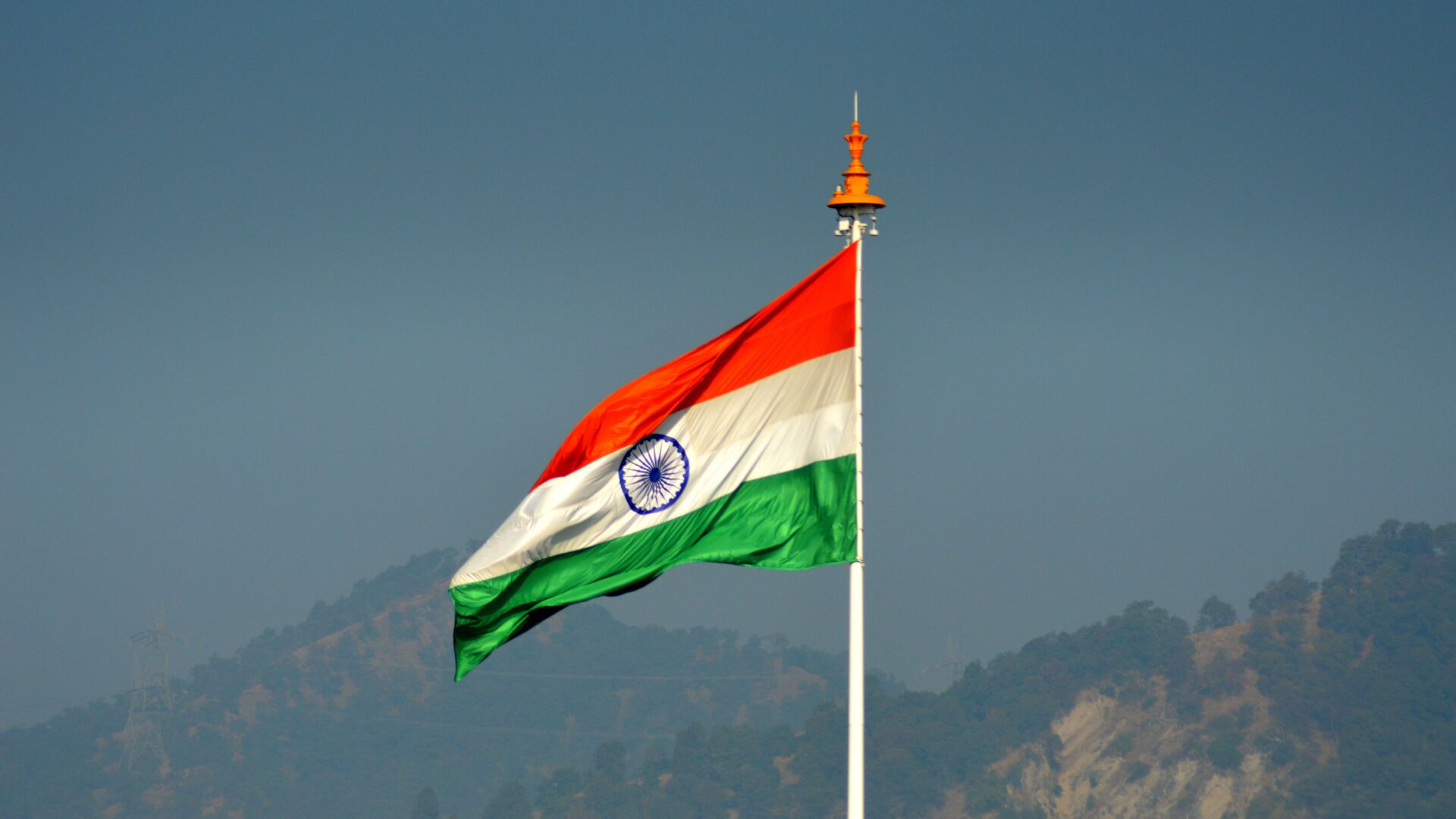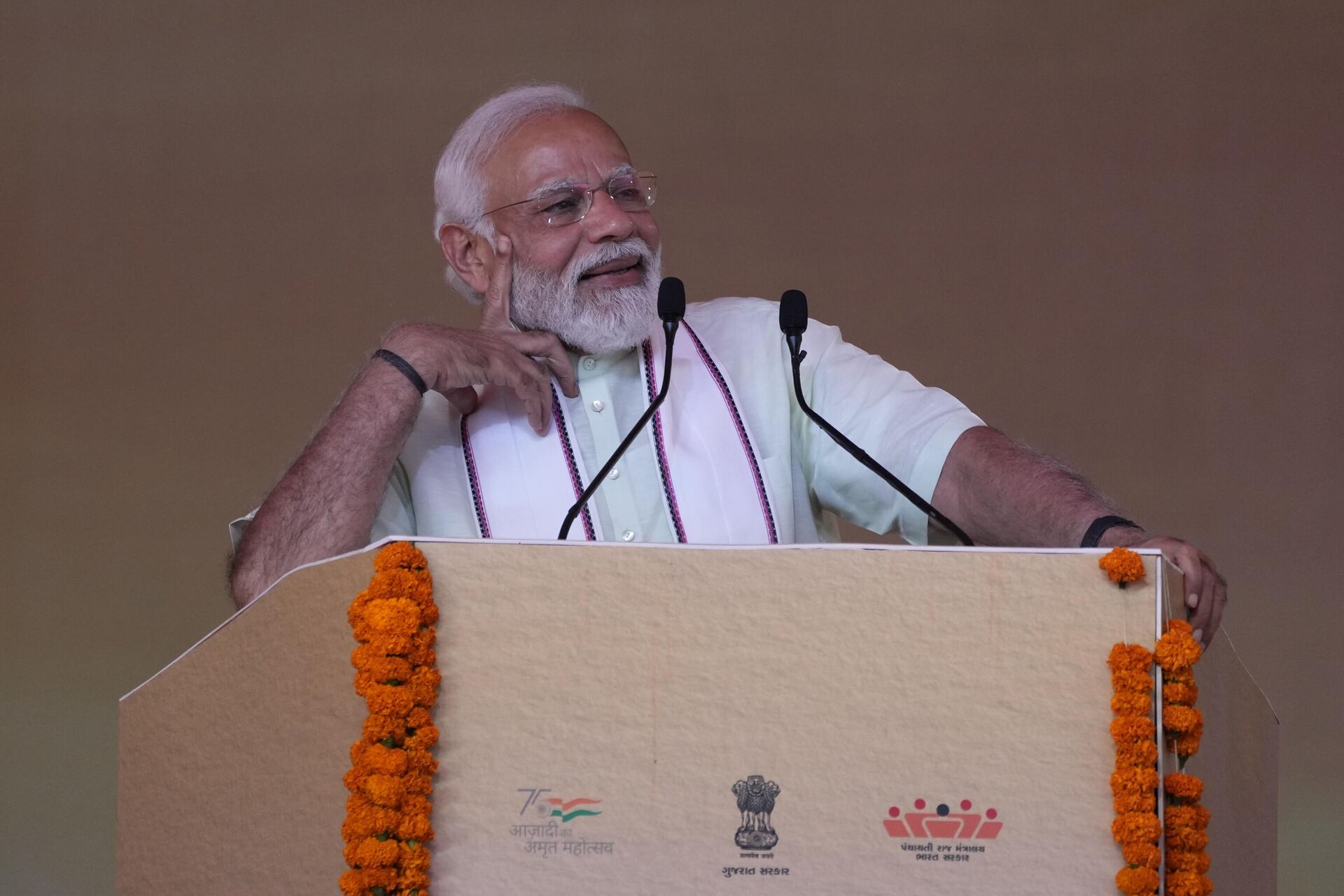https://sputnikglobe.com/20220405/as-israel--india-mark-30-years-of-ties-what-does-the-future-hold-for-bilateral-cooperation-1094497835.html
As Israel & India Mark 30 Years of Ties, What Does the Future Hold for Bilateral Cooperation?
As Israel & India Mark 30 Years of Ties, What Does the Future Hold for Bilateral Cooperation?
Sputnik International
Initially, India's attitude towards Israel was largely indifferent and somewhat hostile. This could be put down to the Jewish state being viewed as a coloniser and Indian reliance on energy provided by the Gulf – who had no diplomatic ties with Tel Aviv.
2022-04-05T11:12+0000
2022-04-05T11:12+0000
2023-01-15T17:25+0000
middle east
israel
https://cdn1.img.sputnikglobe.com/img/106985/91/1069859116_0:616:6017:4000_1920x0_80_0_0_8f4a420638e7964277b57e679fc2e8ed.jpg
April marks 30 years since the establishment of diplomatic relations between Israel and India.To celebrate the occasion Israeli Prime Minister Naftali Bennett was supposed to fly to New Delhi this week, but he decided to postpone his trip due to the volatile security situation in his country. It was decided that the PM will meet his Indian counterpart Narendra Modi in the coming weeks.Security and AgricultureSuch issues as defence, cybersecurity, and agricultural cooperation are likely to be discussed, opines Indian journalist and a political analyst Sumit Chaudhary.In terms of security, Delhi and Tel Aviv have been bolstering ties. According to a report by the Stockholm International Peace Research Institute, India spent $2.7 billion on Israeli weapons between 2011 and 2020, with the Jewish state becoming India's fourth largest arms supplier.Concerning agriculture, India has also been relying on Israel. In recent years, the Jewish state has established three large companies in the South Asian nation (Rivulin, Naan, and Netafim), specialising in watering farms and fields and the expectation is that more firms are on the way, including such pharmaceutical giants as Teva.Hostile Ties?But getting to this point in relations was no easy task.Until 1992, New Delhi's attitude towards Israel had been largely indifferent and even somewhat hostile. Indian passports, for example, included a line that said their holders were not allowed to travel to Israel, while any trade and security dealings were done quite clandestinely.Part of the reason for this was the perception of the Jewish state as a coloniser that controlled and subdued the Palestinians. Another factor was India's Muslim population, their sympathy towards the Palestinians and the country's desire to have friendly ties with the Gulf – one of India's main energy providers. The area has also been a hub for millions of Indian workers, who send some $6 billion home annually.Will Relations Grow Even Stronger?Everything changed dramatically in 2014, when Modi took over, and Chaudhary says that since the PM assumed office, the two states have seen "an acceleration in the pace of ties development".In 2017, PM Modi paid an official visit to Israel becoming the first Indian prime minister to do so.That visit demonstrated that while Modi and his party, the BJP, might still be supportive of the Palestinian cause, he also acknowledged the importance of Israel and realised that the Jewish state may be the decisive factor in helping him achieve his vision of turning India into an industrial powerhouse.This is why, says Chaudhary, the upcoming visit, whenever it takes place, will probably be dedicated to discussions of how to broaden and deepen existing ties.Let's stay in touch no matter what! Follow our Telegram channel to get all the latest news: https://t.me/sputniknewsus
israel
Sputnik International
feedback@sputniknews.com
+74956456601
MIA „Rossiya Segodnya“
2022
News
en_EN
Sputnik International
feedback@sputniknews.com
+74956456601
MIA „Rossiya Segodnya“
Sputnik International
feedback@sputniknews.com
+74956456601
MIA „Rossiya Segodnya“
as israel & india mark 30 years of ties, what does the future hold for bilateral cooperation?
as israel & india mark 30 years of ties, what does the future hold for bilateral cooperation?
As Israel & India Mark 30 Years of Ties, What Does the Future Hold for Bilateral Cooperation?
11:12 GMT 05.04.2022 (Updated: 17:25 GMT 15.01.2023) Initially, India's attitude towards Israel was largely indifferent and somewhat hostile. This could be put down to the Jewish state being viewed as a coloniser and Indian reliance on energy provided by the Gulf – who had no diplomatic ties with Tel Aviv.
April marks 30 years since the establishment of diplomatic relations between Israel and India.
To celebrate the occasion Israeli Prime Minister Naftali Bennett was supposed to fly to New Delhi this week, but he
decided to postpone his trip due to the volatile security situation in his country. It was decided that the PM will meet his Indian counterpart Narendra Modi in the coming weeks.
Such issues as
defence, cybersecurity, and agricultural cooperation are likely to be discussed, opines Indian journalist and a political analyst Sumit Chaudhary.
In terms of security, Delhi and Tel Aviv have been bolstering ties. According to a report by the Stockholm International Peace Research Institute, India spent $2.7 billion on Israeli weapons between 2011 and 2020, with the Jewish state
becoming India's fourth largest arms supplier.Concerning agriculture, India has also been relying on Israel. In recent years, the Jewish state has established three large companies in the South Asian nation (Rivulin, Naan, and Netafim), specialising in watering farms and fields and the expectation is that more firms are on the way, including such pharmaceutical giants as Teva.
But getting to this point in relations was no easy task.
Until 1992, New Delhi's attitude towards Israel had been largely indifferent and even somewhat hostile. Indian passports, for example, included a line that said their holders were not allowed to travel to Israel, while any trade and security dealings were done quite clandestinely.
Part of the reason for this was the perception of the Jewish state as a coloniser that controlled and subdued the Palestinians. Another factor was
India's Muslim population, their sympathy towards the Palestinians and the country's desire to have friendly ties with the Gulf – one of India's main energy providers. The area has also been a hub for millions of Indian workers, who send some $6 billion home annually.
Will Relations Grow Even Stronger?
Everything changed dramatically in 2014, when Modi took over, and Chaudhary says that since the PM assumed office, the two states have seen "an acceleration in the pace of ties development".
In 2017, PM Modi paid an official visit to Israel becoming the first Indian prime minister to do so.
That visit demonstrated that while Modi and his party, the BJP, might still be supportive of the Palestinian cause, he also acknowledged the importance of Israel and realised that the Jewish state may be the decisive factor in helping him achieve his vision of turning India into an industrial powerhouse.
This is why, says Chaudhary, the upcoming visit, whenever it takes place, will probably be dedicated to discussions of how to broaden and deepen existing ties.
"We suspect that the leaders will discuss a free trade agreement, terrorism and the security situation, space technologies, and innovations", said the journalist.
"One thing is certain: those ties will only grow stronger with time", he concluded.
Let's stay in touch no matter what! Follow our Telegram channel to get all the latest news: https://t.me/sputniknewsus 

